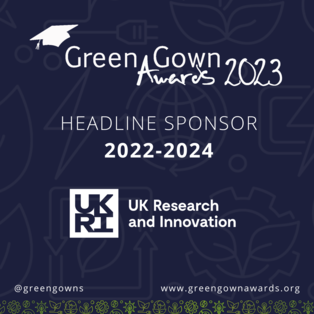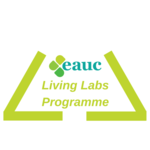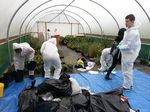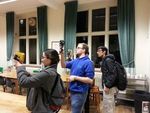The Next Chapter: UK Living Labs
31st Jan 2017 09:30 – 16:00
A university or college Living Lab combines the efforts of students, academics, professional staff and local actors in collaborative sustainability projects. These relationship-based projects feature a combination of hands-on and academic work to solve real-world sustainability problems. They dissolve the boundaries between academia and practice to create an immersive and powerful sustainability learning experience for all participants. Most importantly, a Living Lab requires equal treatment of all stakeholder groups, resulting in significant benefits for all, not just a particular group.
Students gain valuable practical experience; professional and employability skills; technical and degree-related skills; confidence of linking theory to practice, i.e. bringing the classroom and academic research into the ‘real-world’; and an increased interest in studies. Academics gain access to a live test-bed to conduct innovative research, have a positive bearing on their surroundings, directly learn from field experience, and add to their impact agenda. Professional staff and local organisations are assisted by partners who help solve complex problems while also benefitting from theoretical knowledge to better explain and understand problems.
The Living Lab is a revolutionary concept that is extremely relevant for all tertiary education staff concerned with sustainability. This event is for both academic and professional staff, where participants will collectively engage with the concept. We will discuss the EAUC research on Living Labs (which participants will get a first look at), as well as a number of other topics like initiating, establishing, and overcoming barriers to Living Labs. This event has been designed in collaboration with Professor James Evans, a leading academic and practitioner in Living Labs.
Agenda
9.30am – 10am: Arrivals and Refreshments
10am – 10.15am: Welcome and Introduction– Iain Patton, EAUC CEO
10.15am – 11am: Discussion on EAUC’s Living Labs Research – Iain Patton, EAUC CEO and Hassan Waheed, EAUC Researcher
Discussion will include the EAUC LL Report and LL Model with its potential as a standard for Living Labs in universities and colleges globally. The toolkit and the case studies included in the research will also be discussed in this interactive session.
11am – 11.15am: Refreshments
11.15am – 1pm: Workshops 1
How to Set Up and Scale a Living Lab – James Evans, Professor in Human Geography, University of Manchester.
Living Labs can be complicated and multi-faceted initiatives to implement. James will draw from his significant experience as a LL practitioner to share how they can be more effectively implemented and scaled.
OR
Understanding Each Other: The Relationship Between the Academy and Operations – Emily Dunning, Living Laboratory for Sustainability Coordinator, University of Cambridge
It can often be challenging to manage the expectations of various actors from two different stakeholder groups at once. Emily will share advice that will be relevant for teachers and students on how to better understand and work with professional staff, and vice versa.
Sessions include facilitated discussion.
1pm – 2pm: Lunch and Networking Time
2pm – 3.30pm: Workshops 2
Making a strategic case for the Living Lab – Liz Cooper, Research and Policy Manager, University of Edinburgh
To truly maximise the benefits of LLs, the concept needs to be integrated into policies and practices across the institution. By example of recent developments at Edinburgh, Liz will demonstrate how to make a strategic case for a LL at a senior level.
OR
Integrating Living Labs into the Academic Agenda – Stephanie Glendinning, Professor of Civil Engineering, Newcastle University
The research agenda of any institution is an output of complicated social, political and economic factors. Stephanie will discuss how the common ground to advance sustainability among researchers can be sought, and indeed, how LL can serve as a powerful tool to unite the varying agendas.
Sessions include facilitated discussion.
3.30pm – 4pm: Optional Walking Tour of University of Manchester Living Lab projects – James Evans, Professor in Human Geography, University of Manchester
Please specify at the time of booking if you have any special dietary or access requirements.
Booking for this event is now closed. If you have any queries about a booking, please contact nbartlett@eauc.org.uk.
Getting to the Event
We encourage delegates to use public transport for this event. Manchester Piccadilly Railway Station is approximately a five minute walk from the Renold Building. Walking directions from Manchester Piccadilly Railway Station to the Renold Building are available
here.
If you wish to car share, please visit
www.eauccarshare.org.uk to find a car share partner. Parking for the event will be available at Charles Street Car Park, which can be found on the Campus Map
here. Tariff information can be found
here.
Complete joining instructions will be sent out closer to the event.









 Except where otherwise stated, content on this site is
licensed under a Creative Commons Attribution 3.0 License.
Except where otherwise stated, content on this site is
licensed under a Creative Commons Attribution 3.0 License.
